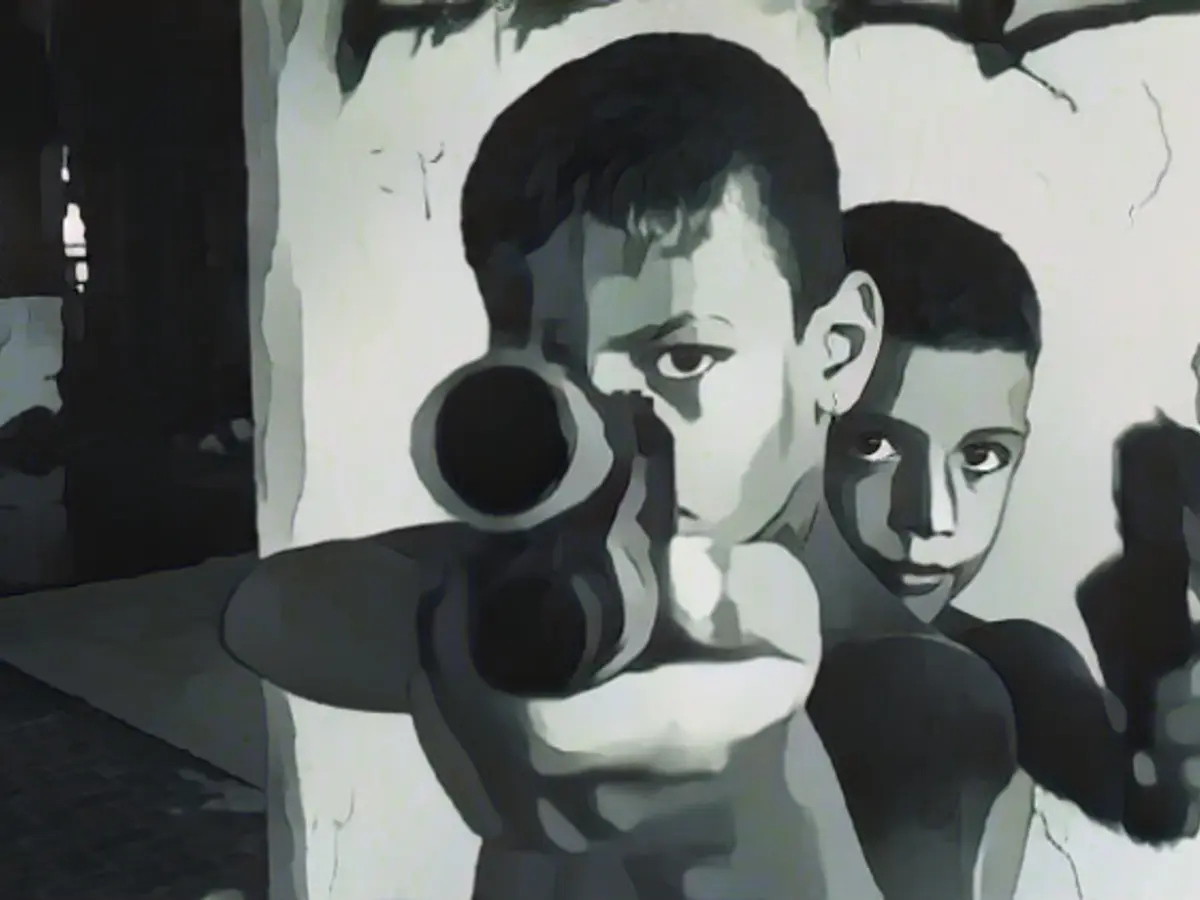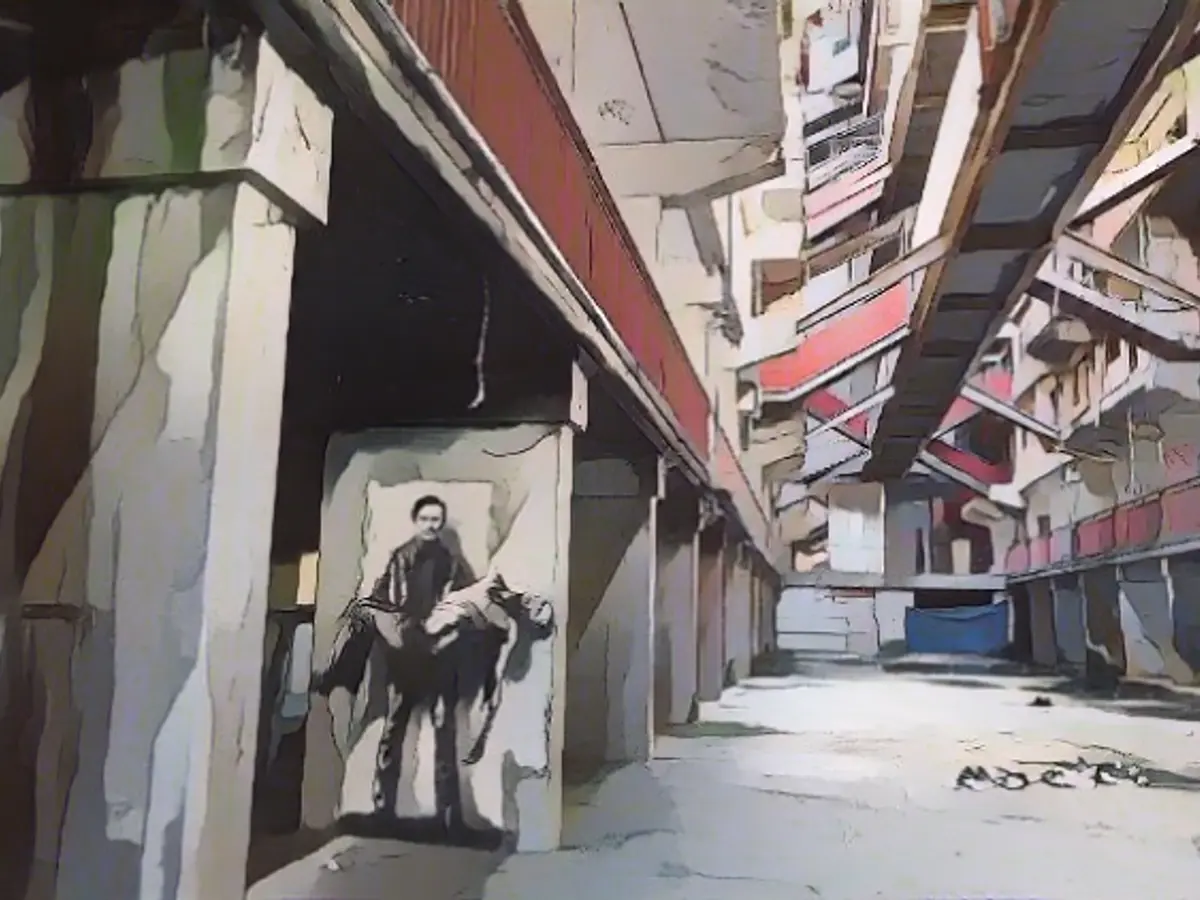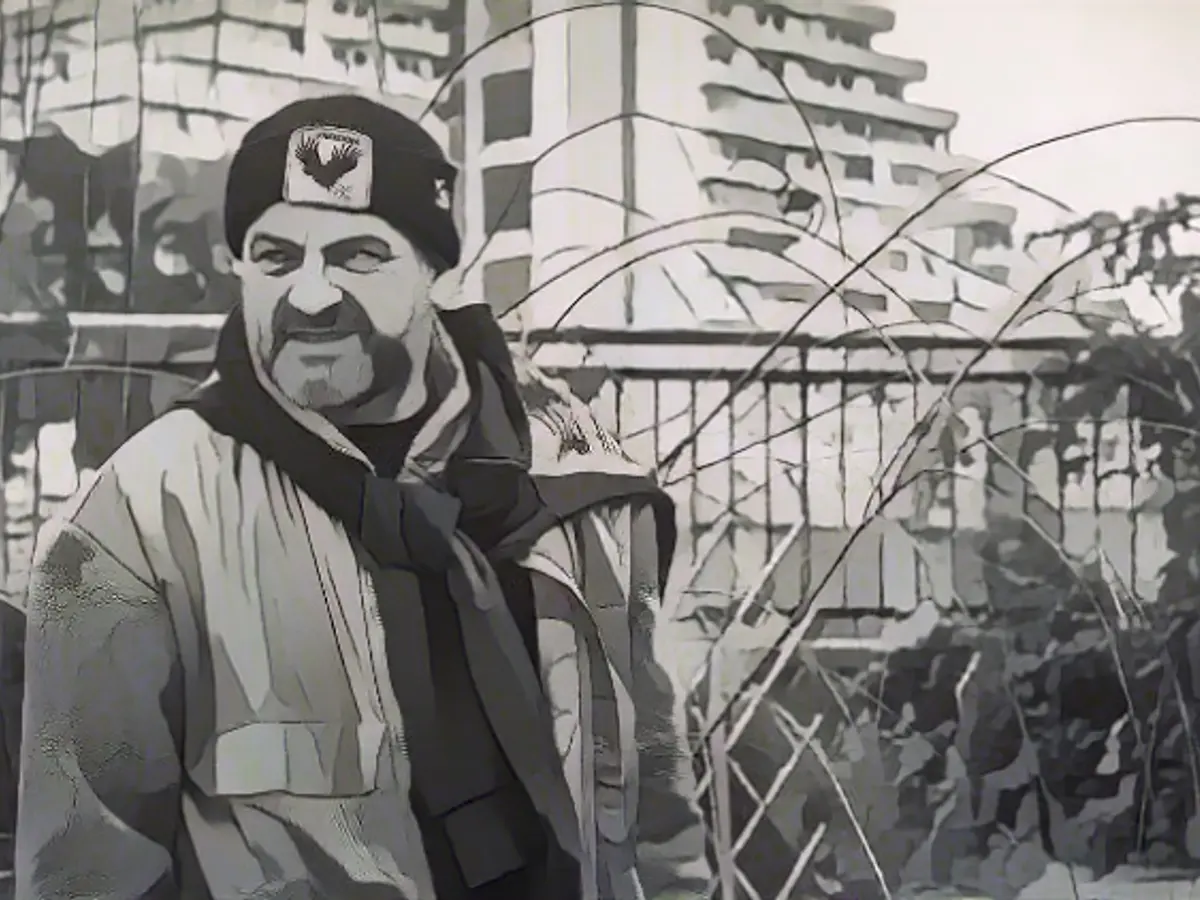Davide Cerullo - the reformed mafioso
Growing up in the notorious Neapolitan mafia stronghold of Scampia, Davide Cerullo served the Camorra from the age of 10. At 14, a pistol was put in his hand. At some point, however, poetry crossed his path and saved him.
It was two pages from the Gospel of Luke, which he found one day on the prison bunk, that gave his mafioso existence its first small leaps, says Davide Cerullo at a meeting in Italy. His first name, Davide, appeared several times on the two pages, and it impressed him so much that he tore out the pages, hid them and took them with him when he was released.
Right after his 18th birthday, he was arrested for drug trafficking and sent to Poggioreale prison. However, his criminal career had begun much earlier: Just 10 years old, he began doing small-time jobs for the Neapolitan organized crime group, the Camorra.
The Camorristi had nicknamed him "Ciao Crem" because he looked very much like the boy in the chocolate advertisement, and so he was just Ciao Crem to everyone. He himself identified so much with the nickname that it made a deep impression on him to read his baptismal name Davide. "It was as if I was finding myself again," he says.
Today, Cerullo is 49 years old, stocky, with graying hair and a beard. Once again, he is touring Italy to present his recently published photo album book "Volti di Scampia" (Faces from Scampia) and, above all, to tell his story once again in schools. A story that tells of hell and of a rebirth, or rather a new birth.
First pistol at 14
The "apprenticeship years" began with small services, such as transporting drugs or weapons from one apartment building and later from one neighborhood to another. He lived with his mother and 13 siblings in the Neapolitan Camorra district of Scampia, a neighborhood that became internationally famous with Matteo Garrone's award-winning 2008 film "Gomorrah".
There are moments when you don't want to listen to Davide Cerullo anymore, because what he says is almost unbearable. For example, the memory of the first mafia death he saw at the age of 11. "It was our boss, he had been shot in the back of the head with a bullet that came out of his nose. Even after all these years, I can still see the whole scene in front of me: I see the dead man, I see myself sticking my finger in the hole and I feel the icy cold." Back then, he and his best friend had sworn to die just like their boss. Because someone who is insidiously shot from behind is someone who cannot be defeated in any other way.

The Camorristi put Cerullo's first pistol in his hand when he was 14. "They knew I couldn't wait to shoot someone in the face." Only the story of his first arrest at 16 reminds the listener that we are talking about a child or teenager here. "The police didn't handcuff me. But I insisted because in the films, the mafia bosses were always handcuffed."
A childhood full of anger and violence
A lot of time has passed since those two pages from the Gospel of Luke and Cerullo has managed to break away from the criminal world. Today he is a photographer, author and has founded the association "Albero delle storie", the tree of stories, in Scampia. He looks after a group of children aged between seven and eleven, helps them with their homework and organizes dinners and parties with their families. There are also a few goats and sheep in the small garden that belongs to the association's house. A memento of his childhood, his father was a sheep farmer, but above all something nice for his protégés. "Children have the right to be children," says Cerullo, and he knows what he's talking about.
Cerullo explains why he wanted nothing more than to be a camorrista as a child in his autobiography "L'orrore e la bellezza" (Horror and Beauty), which was published a few years ago. In it, he recounts a childhood that almost condemned him to this: his father was a sheep farmer and the violent patriarch of the family. At boarding school, where he and his brother were sent for a year, he was constantly humiliated and sexually assaulted. There was no tenderness, affection or love: "It all fed my anger and addiction to violence."
All his brothers were behind bars, including his mother. He was still a child when he saw one of his brothers in the bathroom injecting himself with heroin. He didn't seem to be impressed: "I was interested in what it felt like," says Cerullo. He decided to try it out himself: "But I didn't do it because I'm afraid of injections." As a dealer, he saw how many people ruined themselves. But he didn't feel guilty about selling the stuff. "It wasn't me who sought them out, they came to me," he told himself at the time.

Unlike many of his friends and acquaintances, Cerullo is still alive. This is because he had not killed anyone and did not know any of the Camorra's secrets. He has two people to thank for this: the nun Suor Monica and the painter Sergio. Both kept coming back to Scampia, making their rounds in the district, always on the lookout for souls still to be saved.
Scars that remain forever
Cerullo recounts how one day Suor Monica asked him what a camorrista was: "I replied that it was someone who could afford anything." He himself earned around 900,000 lire a day, which is the equivalent of around 450 euros. The only thing that mattered was money, a boss had once told him, accompanying this statement with the universal gesture of thumb and forefinger rubbing against each other. Suor Monica replied: "That's right, but you're forgetting that the camorrista is also digging his own grave."
While the nun talked him into it, the painter Sergio introduced him to literature and poetry. "I liked going to school, but I couldn't do more than elementary school," says Cerullo. "There were no books at home, but at Sergio's it was full of them. I slowly read my way through Pier Paolo Pasolini, Christian Bobin and Anna Akhmatova, to name just a few." He likes to quote the Russian poet Akhmatova with the verse: "And would you know how without any shame / Poems grow, and from what garbage!"
"Poetry has awakened me to new life," he adds by way of explanation. Admittedly, he will feel the scars left by his past life until the end of his days. It is also not in his power to save others, "everyone has to save themselves". But what he can do: Save children from a "career" like his. At least try. So that children can just be children.
In this context, he talks about an incident that happened recently: He was a guest at a school near Naples. A boy, around 11 years old, approached him and asked: "Is it true that you were in prison?" "Yes," Cerullo replied. "And for how long?" "A year." "I see," the boy replied disdainfully and added proudly: "My grandfather was behind bars for a whole five years." Today, Cerullo is fighting against this normalization of evil, against this reversal of values.
Read also:
- Snow chaos further restricts Bavaria
- Extreme weather year: of masses of water and hurricanes
- "Zoltan" sweeps across the country - disruptions to rail traffic
- "Zoltan" brings masses of water, rail chaos and suspected tornadoes
Despite the International community's efforts to combat organized crime, the Italian Mafia, specifically the Camorra, continues to exert its influence in places like the Neapolitan stronghold of Scampia, as illustrated by the life of former mafioso Davide Cerullo. Strangely enough, it was a passage from the Gospel of Luke that sparked Cerullo's transformation, leading him to leave his criminal life behind at the age of 18.
The International media spotlight on Scampia after Matteo Garrone's award-winning film "Gomorrah" brought attention to the area, but it also put a target on the backs of individuals like Davide Cerullo who decided to escape from the mafia's grip. As he takes his photo album book "Volti di Scampia" (Faces from Scampia) on tour through Italy, Cerullo shares his story of redemption and hope for a better future, encouraging children to pursue a life of peace and happiness rather than becoming pawns in the Mafia's deadly game.
Source: www.ntv.de






